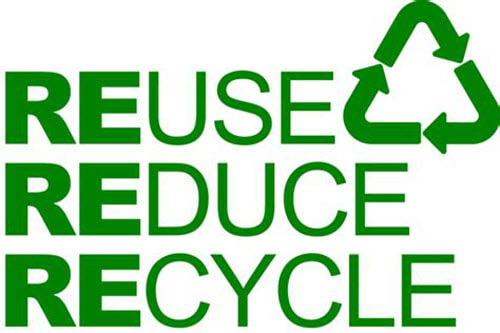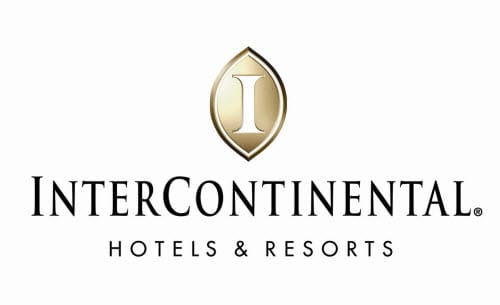Sustainability in the hospitality industry has gained significant attention over the past several decades. Around the globe, discussions on the issue of sustainability in hotel industry are still ongoing as trends and challenges are constantly emerging. Hoteliers have especially turned their focus to the importance of environmental sustainability as it heavily relates to their industry in terms of hotel development and operations extending to economic and social impact. Sustainability is one of the issues we are currently addressing which is one of the reasons why hotels should go green.
5 Great Sustainability Initiatives for the Hotel Industry in 2024

Understanding Hotel Sustainability Initiatives
The hospitality sector historically has had a dramatic environmental influence through water and energy consumption and heavy use of consumable and durable goods causing solid and hazardous waste. Hotels consume an exorbitant amount of energy for HVAC operations, fuel, lighting and other power needs. Water is used in pools, bathtubs, sinks, laundry and for general operations. Unfortunately, all this creates a lot of waste generated by disposable of paper, plastic, bulbs, batteries, commercial furniture, equipment, appliances, etc. Economical myths that green sustainable hotel ideas are expensive and dismissed by many have circulated but quickly debunked. Recent innovations in technology relating to renewable sources of energy such as solar, wind and geothermal have come a long way to improve the economics of using these alternatives at property level.
As environmental concerns are being raised and eco-friendly practices are becoming vogue, hoteliers and other professionals in the hospitality industry continue to expand their knowledge of sustainability – eco-friendly or “green” hotel initiatives is a widely discussed topic. Hotels from budget-friendly to luxurious are taking bigger steps to make their business practices initiatives more sustainable. Understanding these initiatives can help hoteliers develop a gamut of sustainable hotel ideas and offer event planners more to consider when selecting hotels for their client’s events as a venue or as an overnight accommodation for guests visiting from afar. Hoteliers themselves are beginning to realize that they can enhance guest experience by integrating the design and layout of their hotels with natural elements, inspired by the 5 following factors.
Saving Costs

Cost is always a driving factor in every commercial industry and reducing operating expenses offers a persuasive incentive for hoteliers to take the green route. Reduction in costs as well as efficient strategies is achievable through investment in better operational procedures and through the emergence of advanced environmental technologies. Many hoteliers are currently putting these initiatives into effect – reducing, reusing and recycling waste. Other developing areas include indoor air quality, chemical/cleaning product use, sustainable procurement, and staff training programs to facilitate in improving employee performances and achieving higher levels of employee satisfaction/retention. They also save money in the long run by purchasing restaurant tables and chairs from reputable commercial grade furniture distributors and they craft their items from high grade materials that ensure their longevity in even the most rigorous environments.
Water and Energy Conservation

Respective to cost savings, hoteliers are going through many great lengths to sustain and enhance guest experience while searching for ways to reduce energy from central operations such as boilers, refrigeration, air conditioning, lighting systems, and kitchen equipment to automated energy management systems. According to the Carbon Trust, hoteliers can cut their energy bills down to as much as 20% just by implementing simple and inexpensive energy efficient measures! If you are attempting to make your hotel property more eco-friendly, this is a great place to start. Raising energy conversation awareness among staff with lighting control, optimizing room and water temperatures are just some of the many eco-friendly steps you can take. Taking the eco-friendly avenue presents some business advantages as well as environmental benefits. Not only are these measures proven to be economically beneficial, they are also just as likely to build and strengthen your hotel’s reputation.
97% of the water we use comes from the ocean which covers 71% of the Earth’s surface. Water is essential in the hotel industry – used for food preparations, drinks, cleaning, hygiene, guest comfort and recreation. Because water accounts for 10% of hotel utility bills, hotels are becoming more conscientious over the amount of water they consume and are putting a limit in usage. Hotels continue to phase inefficiencies that reduce water in laundry rooms, bathrooms, pools, and spas and in many cases, chemicals used to treat water systems and clean facilities. Efforts to conserve water such as linen and towel reuse programs are now an industry standard to installation of low-flow shower heads, faucets and other fixtures. Depending on how water efficient they are, hotels can reduce the amount of water they consume by 50% per guest per night in comparison to establishments with poor performance in water consumption.
Recycling and Waste Reduction

While the hotel industry may be more eco-conscious than it was in previous years, they still have a long way to go before tackling the issue of waste. Due to the diversity in operational functions and staff positions, the 24 hour demanding work schedule and the immediacy of great hotel service, hotels tend to struggle more with separating recyclable waste from the rest of the trash. IN recent years, however, hotels are diverting their attention to waste management programs. Success in these recycling initiatives sometimes means developing sustainable hotel ideas for both managers and staff to use and developing resources that would otherwise go ignored or underutilized. Additionally, communal support and partnerships to achieve waste reduction and recycling goals are not lacking - something hoteliers should use to their full advantage.
The hotel industry is gradually reaping the benefits of initial recycling programs. Using the enthusiasm of their staff, hotels have seen significant rewards from these initiatives. For instance, a hotel in San Diego California was able to cut costs by 50% in only a matter of months while a 300 room hotel in Miami, which diverts 150 tons of waste per month, have reduced expenses by 60%. Their recycling efforts are being met with success and they are even generating revenue from them.
Food Preparation, Room Keys, and Water Bottle Alternatives
Use of local fresh seasonal products and other ingredients have become a significant focus of hotel food and beverage programs. Many hotels are making a shift to more sustainable and healthful cuisine which offers a unique experience for guests to connect and appreciate the location they are visiting in an ecological way. Likewise, hotel restaurants are integrating more selections in menu items consisting of organic produce, hormone-free meats and dairy, and other natural products that provide guests with healthier choices of food.
As more hotels are embracing waste reduction incentives, they are distancing themselves from bottled water and using unique hydration options for travelers and meeting attendees instead. Such hotels know to look for conveniently located filtered water dispensers, refillable bottles and other palatable alternatives to provide guests with in lieu of water bottles.
The plastic hotel key cards which we normally use are made from PVC (polyvinyl chloride), a plastic base thought to be toxic. Hotel companies are swapping them for card options made of paper, wood and bio plastic that are not only better for the environment but are equally durable as well.
Improving Corporate Brand Image

Acclimating to the sustainable corporate culture, especially at hotels, can attract and retain talent. Shelton Group report estimates that 55% of US employee would rather work for a socially responsible company. The number of such employees jumps to 76% among millenials. Moreover, approximately 83% of millennial employees professed their loyalty to companies that help them contribute to environmental and social related issues. These statistics clearly suggest that sustainability and the company’s commitment to it, is very important to employees.
In response to this phenomenon, most major hotels have incorporated some level of sustainability platform into their brand definition. Several of these hotel brands have been altered to tailor to the more environmentally and socially conscious customers. Nevertheless, hotels need to put their plans into effect. Actions speak louder than words, particularly with the younger generation on hotel brands. Employing sustainable business practices will enhance the reputation of the hotel as well as its brand image which will eventually lead to greater profits.






























































